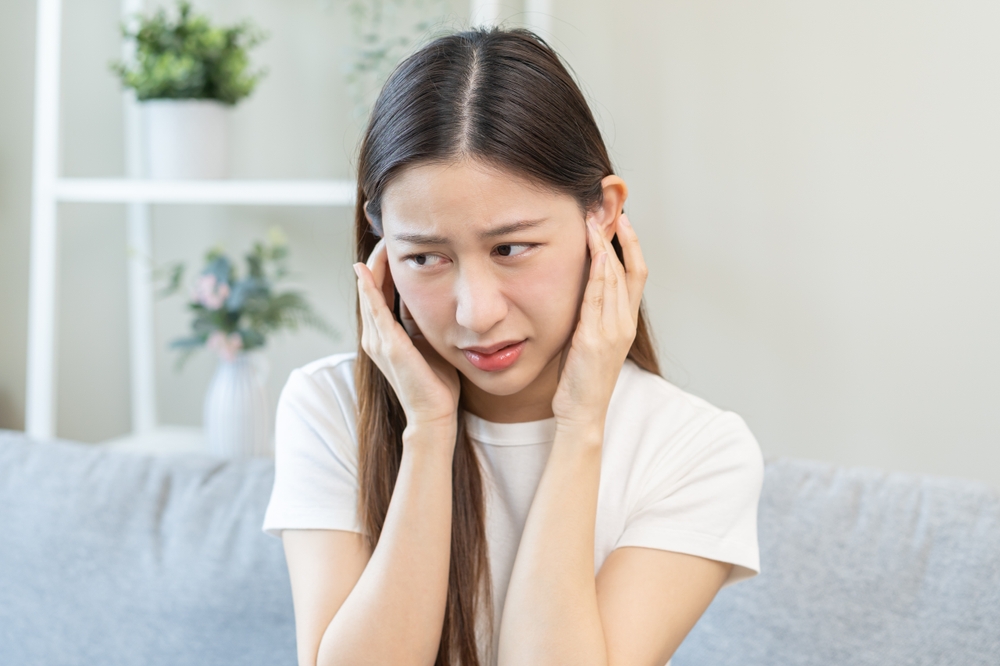 If you’ve ever experienced a persistent ringing, buzzing, or humming sound in your ears with no external source, you may be dealing with tinnitus. This frustrating condition affects nearly 50 million Americans to some degree, according to the American Tinnitus Association (ATA). While tinnitus isn’t a disease itself, it’s often a symptom of underlying issues such as hearing loss, ear infections, or exposure to loud noises.
If you’ve ever experienced a persistent ringing, buzzing, or humming sound in your ears with no external source, you may be dealing with tinnitus. This frustrating condition affects nearly 50 million Americans to some degree, according to the American Tinnitus Association (ATA). While tinnitus isn’t a disease itself, it’s often a symptom of underlying issues such as hearing loss, ear infections, or exposure to loud noises.
The big question many tinnitus sufferers ask is: Can you actually stop the ringing in your ears? While there is no universal cure for tinnitus, there are several tinnitus relief strategies and treatments that can significantly reduce symptoms and improve your quality of life.
Understanding Tinnitus: What Causes the Ringing in Your Ears?
Tinnitus occurs when there is a disruption in the auditory system, leading to a false perception of sound. The most common causes include:
- Noise-induced hearing loss: Exposure to loud noises (concerts, machinery, headphones at high volumes) can damage the inner ear.
- Age-related hearing loss: As we age, our auditory system naturally weakens, increasing the risk of tinnitus.
- Earwax buildup: Excess earwax can block the ear canal and cause a ringing sensation.
- Medications: Certain drugs, including aspirin, antibiotics, and antidepressants, list tinnitus as a potential side effect.
- Underlying medical conditions: High blood pressure, TMJ disorders, or Meniere’s disease can all trigger tinnitus.
With so many possible causes, finding the right tinnitus treatment requires understanding what’s contributing to your symptoms.
Top Tinnitus Treatments and Relief Options
While there’s no single cure for tinnitus, the following strategies have been proven to help reduce the ringing in your ears and provide lasting relief.
1. Hearing Aids for Tinnitus Relief
If your tinnitus is linked to hearing loss, hearing aids can be one of the most effective treatments. Studies show that nearly 60% of people with hearing aids experience tinnitus relief, and 22% find significant improvement.
How It Works: Hearing aids amplify external sounds, making tinnitus less noticeable. Many models also include tinnitus masking features, which produce soft background sounds to distract from ringing.
Tip: If you suspect hearing loss, schedule a hearing test at El Dorado Hearing to determine if a hearing aid could help manage your tinnitus.
2. Sound Therapy and Masking Devices
Sound therapy uses external noise to reduce tinnitus awareness. This includes:
- White noise machines: Background noise can help mask tinnitus sounds, especially at night.
- Specialized tinnitus apps: Apps like ReSound Relief and Starkey Relax offer customizable sound therapy.
- Natural background noise: A fan, soft music, or nature sounds can provide relief.
Why It Works: The brain gets accustomed to the external sounds, gradually desensitizing itself to tinnitus.
3. Lifestyle Changes to Reduce Tinnitus Symptoms
Your daily habits play a significant role in managing tinnitus. Consider these lifestyle adjustments:
- Reduce caffeine and alcohol: Stimulants can increase tinnitus symptoms.
- Manage stress: Meditation, yoga, and deep breathing can help lower tinnitus severity.
- Improve sleep habits: Lack of rest worsens tinnitus – try using sleep aids like white noise or blackout curtains.
- Exercise regularly: Good circulation supports inner ear health.
4. Cognitive Behavioral Therapy (CBT) for Tinnitus
CBT is a proven method for tinnitus treatment, helping people change their emotional responses to tinnitus.
Success Rate: Studies indicate 80% of tinnitus patients experience reduced distress with CBT.
How It Works: Therapy helps patients focus less on the ringing, making it easier to ignore over time.
Tip: If tinnitus is causing anxiety or depression, consider professional counseling to help with coping strategies.
5. Earwax Removal for Immediate Tinnitus Relief
Excessive earwax buildup can block sound, leading to temporary tinnitus. Professional ear cleaning can often provide immediate relief.
Do NOT use cotton swabs! They push wax deeper into the ear canal. Instead, visit a hearing specialist for safe removal.
Tip: El Dorado Hearing offers professional earwax removal services to clear blockages safely.
Does Tinnitus Go Away? What to Expect
For some people, tinnitus is temporary and fades over time. This is especially true for cases caused by:
- Temporary loud noise exposure (concerts, explosions)
- Certain medications (once stopped, symptoms may improve)
- Stress-related tinnitus (which improves with relaxation techniques)
However, chronic tinnitus often requires ongoing management. The key is early intervention—the sooner you address tinnitus, the more effective treatments will be.
Take Control of Your Tinnitus with El Dorado Hearing
While tinnitus can be frustrating, there are proven ways to reduce the ringing in your ears and improve your quality of life. From hearing aids and sound therapy to lifestyle changes and professional care, finding the right tinnitus treatment starts with expert guidance.
At El Dorado Hearing in Arizona, we specialize in tinnitus relief solutions tailored to your specific needs. Whether you need a hearing test, professional earwax removal, or a custom hearing aid with tinnitus masking, we’re here to help.




Leave a Reply